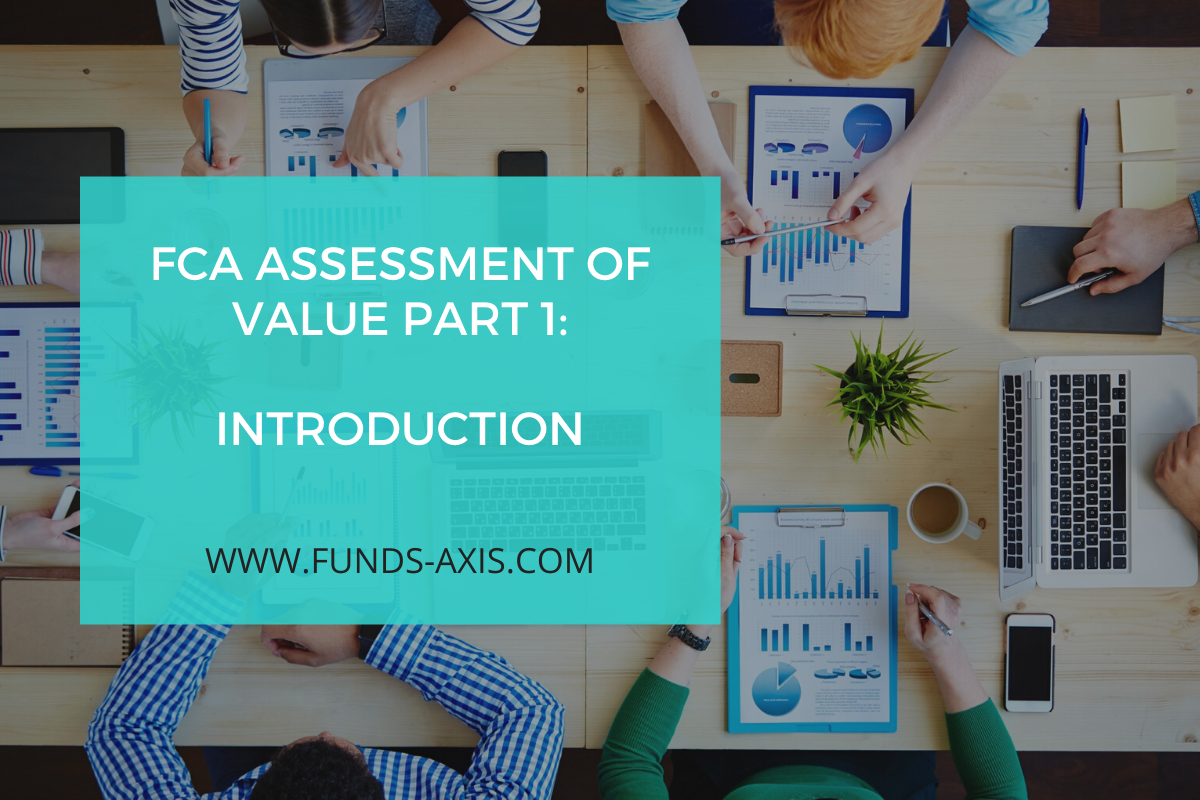Following on findings of weak price competition in the Asset Management Market Review, on 5 April 2018 the FCA published 18/8: “Asset Management Market Study remedies and changes to the handbook – Feedback and final rules to CP17/18.”
The first set of measures introduced as part of the FCA Asset Management Market Study includes the following key change:
- By August 2019, the requirement for funds to disclose consistently the existence and purpose of any benchmarks;
- By September 2019, the requirement for AFMs to appoint a minimum of two independent non-executive directors (iNEDS) and for them to comprise at least 25% of the total board membership; and
- From September 2019, new rules and prescribed responsibility on assessing value for money.
The intended benefits of achieving effective competition include lower prices for investors, better quality service and greater innovation.
As regards FCA Assessment of Value, the provisions are set out in COLL 6.6.19 to 6.6.27 and includes Rules as well as Guidance. The FCA require authorised fund managers (AFMs) to:
- assess the value for money of each fund,
- take corrective action if it does not offer good value for money, and
- explain the assessment annually in a public report.
Under the new Senior Managers and Certification Regime (SM&CR) there is prescribed responsibility for a senior individual, which can be the iNED, to take “reasonable steps” to ensure that the AFM carries out the FCA assessment of value and acts in the best interests of fund investors.
The public reports must be published within 4 months of the fund’s annual accounting period end date, effective for periods ending on or after 30 September 2019.
Who does it affect?
The requirements apply to UK AFMs in respect of their management of authorised funds (that is, authorised open-ended collective investment schemes).
However, the FCA note that Policy Statement will be of interest to insurers running unit-linked and with-profits funds, as well as to UK-listed investment trusts, given the FCA’s comments on the potential for the extension of the AMMS remedies to those sectors.
What constitutes good value for money?
Whilst assessing value for money is by its nature subjective, the FCA has set out clear guidance on the factors that should be considered, as well as examples of where investors are likely to be receiving poor value for money.
The FCA sets out at COLL 6.6.21 the following seven factors as the minimum that firms must consider when assessing the value for money of each fund:
FCA Assessment of Value Seven ( 7 ) FCA Criteria
- Quality of service: the range and quality of services provided to investors;
- Fund performance: the performance of the fund, after deduction of all payments out of scheme property as set out in the prospectus. Performance should be considered over an appropriate timescale having regard to the scheme’s investment objectives, policy and strategy.
- AFM costs: in relation to each charge, the cost of providing the service to which the charge relates, and when money is paid directly to associates or external parties, the cost is the amount paid to that person.
- Economies of scale: whether the AFM is able to achieve savings and benefits from economies of scale, relating to the direct and indirect costs of managing the scheme property and taking into account the value of the scheme property and whether it has grown or contracted in size as a result of the sale and redemption of units.
- Comparable market rates: in relation to each service, the market rate for any comparable service provided by the AFM, or to the AFM or on its behalf, including by a person to which any aspect of the scheme’s management has been delegated.
- Comparable services: in relation to each separate charge, the AFM’s charges and those of its associates for comparable services provided to clients, including for institutional mandates of a comparable size and having similar investment objectives and policies;
- Classes of units: whether it is appropriate for unitholders to hold units in classes subject to higher charges than those applying to other classes of the same scheme with substantially similar rights.
The annual report to investors
Authorised fund managers (AFMs) need to explain the assessment annually in a public report. There is no prescribed format for the report.
This can either be included in the fund’s annual report or in a separate document published within 4 months of the fund’s annual accounting period end date, effective for periods ending on or after 30 September 2019. Where funds have later accounting dates, Boards will have the advantage of waiting to see what others funds have published.
A significant challenge
Performance of the FCA Assessment of Value process will be a significant challenge for firms.
It is a data-intensive process that needs to be conducted at share class level. As part of the process, comparisons have to be made with both external and internal costs and the assessment process will require consideration of factual, quantitative and qualitative information, from both internal and external data sources.
Bringing all this data together in an efficient and meaningful way will be key to the success of the FCA assessment of value process.
Funds-Axis FCA Assessment of Value solution, powered by whole-of-market data from FE fundinfo, provides firms with a comprehensive and efficient toolkit for conducting the assessment of value exercise in a cost-efficient and streamlined way.
To find out more and to arrange a demo, email info@funds-axis.com or +44 (0) 28 9032 9736.






